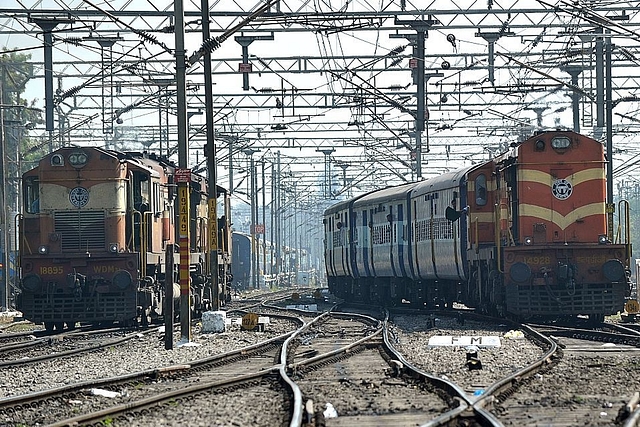
Covid-19 Fallout: Indian Railways Draws Up New Austerity Measures To Control Expenditure
In light of the losses piled on by the coronavirus pandemic, the railways is planning to close uneconomic rail lines, limit ticket counters and freeze new recruitment.
With the Covid-19 pandemic hitting hard the earnings of Indian Railways, an action plan is being firmed up to control expenditure drastically through various measures including cutting staff cost, reducing ticket counters and most importantly closure of uneconomic branch lines among others.
The strategy envisages freezing of new post creation except safety related ones and curtailing the staff who are being re-engaged after retirement, a step aimed to save a substantial amount on account of salary bills as many are currently being re-hired across the country in railways.
"Immediate review of re-engaged staff and feasibility of curtailing the same to bare minimum shall be explored," according to the latest directives of the Railway Board in the wake of the Covid-19 lockdown, an unprecedented occurrence.
In a three-page letter to general managers (GM) of all zones and production units on 19 June, the railways financial commissioner Manjual Rangarajan has sought steps for exploring new areas of expenditure control and enhancement of earnings.
"Review of posts created in the last two years should be done and if recruitment has not been done against those posts, the same may be reviewed for surrendering," the letter containing a series of economic measures and rationalisation of expenditures stated.
In order to tighten the expenditure, the directives sought "review and closure of uneconomic branch lines to the extent possible".
Stressing on the rationalisation of manpower, it has sought reduction in passenger reservation system (PRS) counters and redeployment of enquiry cum reservation clerks due to decrease in over-the-counter reservation.
Taking a dim view of annual GM inspection, a big affair entailing huge expenditure of resource and manpower, the railways has directed it to be a "silent and low key affair with minimum number of staff required".
Annual GM inspections, which are preceded by divisional railway managers inspections, are big events in rail establishment.
On material procurement, it has suggested "procurement should be deferred in such a manner that unused inventory is minimised".
Since the railways plans to electrify all major routes, it has sought grounding of all diesel locos over 31 years through sale as cost control measures.
Seeking curtailment on outsourcing activities, the directives have suggested critical review of onboard housekeeping service, linen management, station cleaning, lifts and escalators manning and station announcement.
The austerity measures also sought review of usage of high-speed diesel oil and energy audit of major load centres.
The nationwide lockdown has adversely affected railway earnings with only 230 trains running so far.
"It may be clearly borne in mind that mere deferment of bills/payment is not expenditure control. Effort has to be in controlling activities, works, purchases and all contractual obligations so that the liabilities are controlled within available funds, the allocation of which should be prioritised," according to the expenditure management formulated by the railways.
Stressing on the directives, the letter said "the recommendation for expenditure control and economy must be binding in nature".